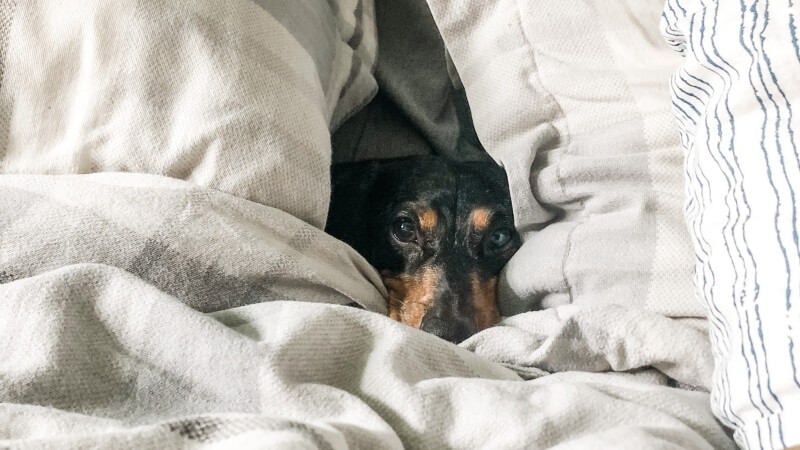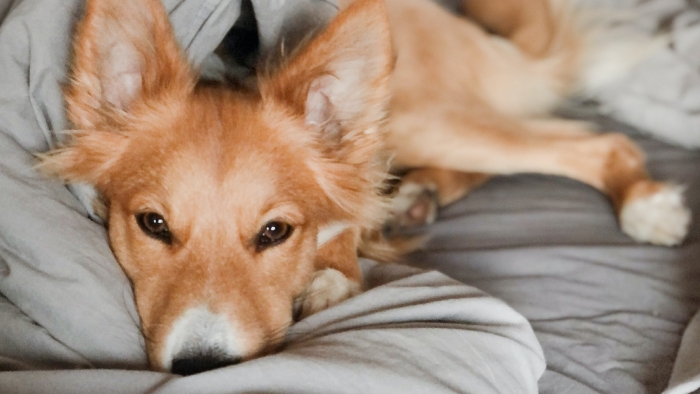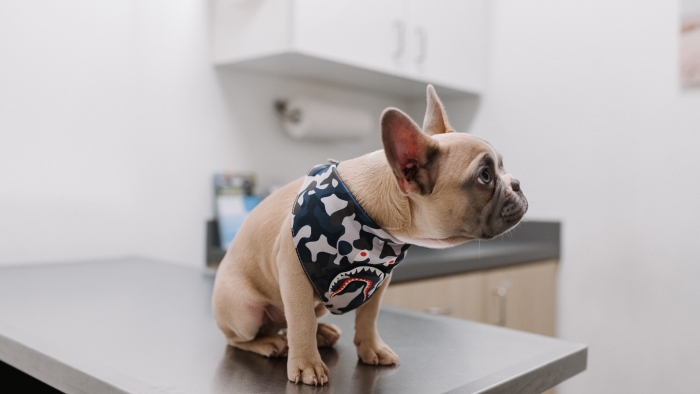
Best Doggie Doorbell:15+ Models Tested for Potty Training
Are you training your doggie doorbell manners, or does your furry friend incessantly scratch or bark at the door to go outside? You need a

“Why does my dog pee on my bed?” This common question among dog owners is not only a matter of cleanliness but also an intriguing puzzle about canine behavior. In this guide, we explore the reasons behind this behavior and provide practical advice to help you and your furry companion live in harmony.
Understanding why my dog pee on my bed is essential. Dogs communicate and express themselves differently than humans, often leading to behaviors that we might find perplexing or even frustrating.

Dogs, like humans, have unique personalities influenced by their upbringing, training, and environment. The way a dog is treated, and trained, and the environment they live in significantly affects their behavior.
A dog that feels safe and secure in its environment is less likely to engage in stress-related behaviors, including inappropriate urination.
Various factors might explain why does my dog pees on my bed:
To address why does my dog pee on my bed, it’s important to implement effective solutions.
To tackle why does my dog pee on my bed, consider these helpful products:

Preventing the issue is often easier than curing it.
Establishing and maintaining a consistent routine is essential for a dog’s overall well-being.
Adhering to regular walks and playtime not only helps in keeping your dog physically fit but also mentally stimulated, reducing boredom and destructive behaviors.
A consistent feeding schedule is equally important, as it aids in digestion and helps in managing their energy levels.
By reducing stress and anxiety in dogs through these routines, you can significantly lessen the likelihood of accidents occurring in places like your bed.
Additionally, such routines can strengthen the bond between you and your dog, making them feel more secure and loved. Regular vet visits and grooming sessions should also be part of their routine, ensuring their health and hygiene are well taken care of.
The emotional well-being of your dog is crucial, mirroring the significance of its physical health.
Canines that experience affection, security, and a sense of belonging within the family tend to show fewer behaviors linked to stress. Investing quality time with your pet, indulging in playful activities, and ensuring they have a secure and cozy personal space are essential.
This includes understanding their unique needs, recognizing signs of distress, and responding with patience and empathy.
Regularly engaging in activities that stimulate their mind and body, like interactive toys and puzzles, enhances their overall happiness and health.
Patience and understanding are vital in solving why does my dog pee on my bed.
In some cases, professional help becomes essential in addressing the challenging question: why does my dog pee on my bed? Recognizing when to seek outside assistance can make a significant difference in effectively managing and resolving this issue.
When standard solutions don’t seem to work, consulting a dog behavior specialist might be necessary. If you’ve tried changing your routine, adapting your environment, and implementing training techniques without success, a specialist can offer new perspectives.
These professionals are trained to understand canine behavior deeply and can provide customized advice and training strategies that are specifically tailored to your dog’s unique situation.
For instance, if your dog is not drinking water but urinating frequently, a behavior specialist can help determine if this is a stress-related issue or something else.
They can assess your dog’s overall behavior, environment, and daily routine to identify stress triggers or anxiety-related issues that might be causing both the unusual urination pattern and the reluctance to drink water.
When behavioral changes are accompanied by physical symptoms like dog not drinking water but urinating, it’s crucial to consult a veterinarian.
This could be a sign of a more serious underlying health issue. Veterinarians can conduct a thorough examination and run diagnostic tests to determine if there are any medical reasons behind your dog’s bed-wetting behavior.

They might suggest medical solutions, such as medications to treat urinary tract infections or other conditions, or recommend dietary adjustments to address possible health concerns.
In cases where the dog is not drinking water but still urinating, a vet can provide valuable insights into potential kidney issues or other metabolic disorders.
Timely veterinary intervention is key to ensuring the health and well-being of your pet, especially when behavioral interventions alone do not resolve the issue.
Solving “Why does my dog pee on my bed?” requires a multifaceted approach.
Understanding your dog’s behavior, providing appropriate training, making environmental adjustments, and sometimes seeking professional help are all part of the process.
Each dog is an individual with unique needs and behaviors. Patience, empathy, and consistency are key in finding a solution that works for both you and your dog.
With the right approach, you can ensure a clean, happy, and harmonious living situation with your beloved pet.
Why does my dog only pee on my bed and not elsewhere in the house?
While dogs may urinate on the bed for various reasons, it could be related to your scent being stronger on the bed, making it a comforting spot for them. Dogs also have a natural instinct to mark their territory, and your bed might be perceived as part of their territory.
Can changing my dog’s diet prevent bed-wetting?
Changing your dog’s diet might help if the bed-wetting is linked to a medical issue like urinary tract infections or dietary sensitivities. However, it’s essential to consult a veterinarian before making dietary changes to ensure they are appropriate for your dog’s specific condition.
How long does it take to train my dog to stop peeing on the bed?
The time it takes to train your dog to stop peeing on the bed can vary depending on factors like the dog’s age, previous training, and the underlying cause of the behavior. Be patient and consistent with training, as some dogs may take longer to learn new habits.
Are there any signs of stress or anxiety I should watch out for in my dog?
Yes, dogs may exhibit signs of stress or anxiety that could contribute to bed-wetting. These signs may include excessive barking, pacing, drooling, or destructive behavior. Identifying and addressing the root causes of stress can help reduce bed-wetting incidents.
Can I use punishment to stop my dog from peeing on the bed?
Punishing your dog for bed-wetting is not recommended as it can increase stress and anxiety, potentially exacerbating the problem. Positive reinforcement and consistent training methods are generally more effective in addressing this behavior.


Are you training your doggie doorbell manners, or does your furry friend incessantly scratch or bark at the door to go outside? You need a

When it comes to dog pee, much like humans, the urine of animals is a vital health indicator. Just as human urine reveals a lot

Noticed your dog yawn more often than usual? While it’s adorable, it could also be a sign of something to consider if it appears excessive.

Wondering what’s so fantastic about bell train a dog? Picture a world where your furry friend always alerts you when they need to go outside,

Are you training your doggie doorbell manners, or does your furry friend incessantly scratch or bark at the door to go outside? You need a

When it comes to dog pee, much like humans, the urine of animals is a vital health indicator. Just as human urine reveals a lot

Noticed your dog yawn more often than usual? While it’s adorable, it could also be a sign of something to consider if it appears excessive.

Wondering what’s so fantastic about bell train a dog? Picture a world where your furry friend always alerts you when they need to go outside,
Copyright © 2024 doggydogdoorbell. All Rights Reserved.